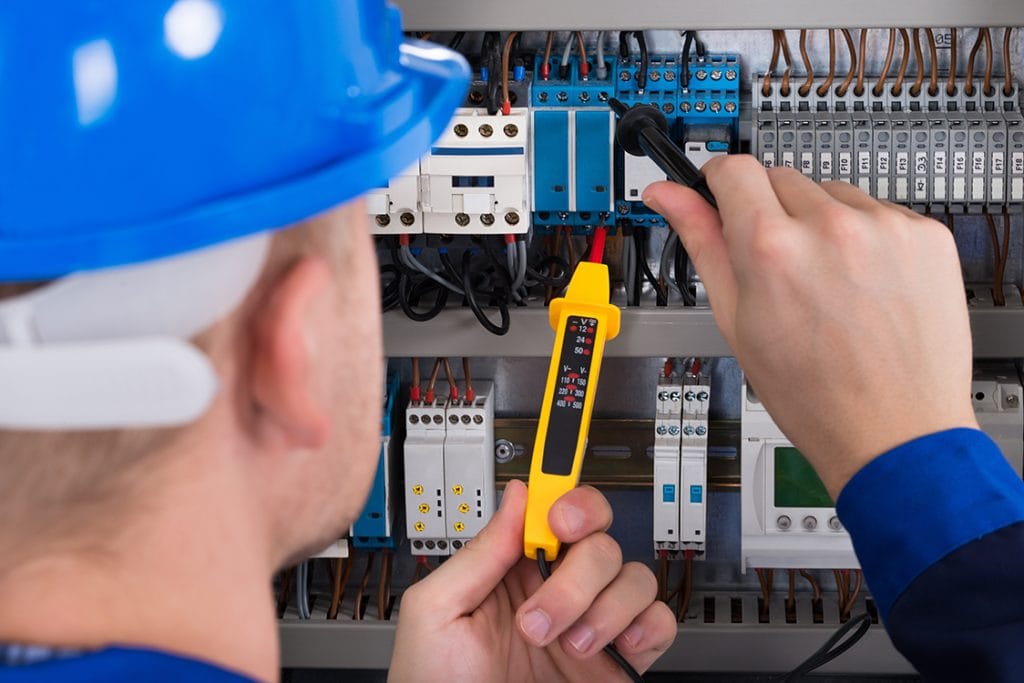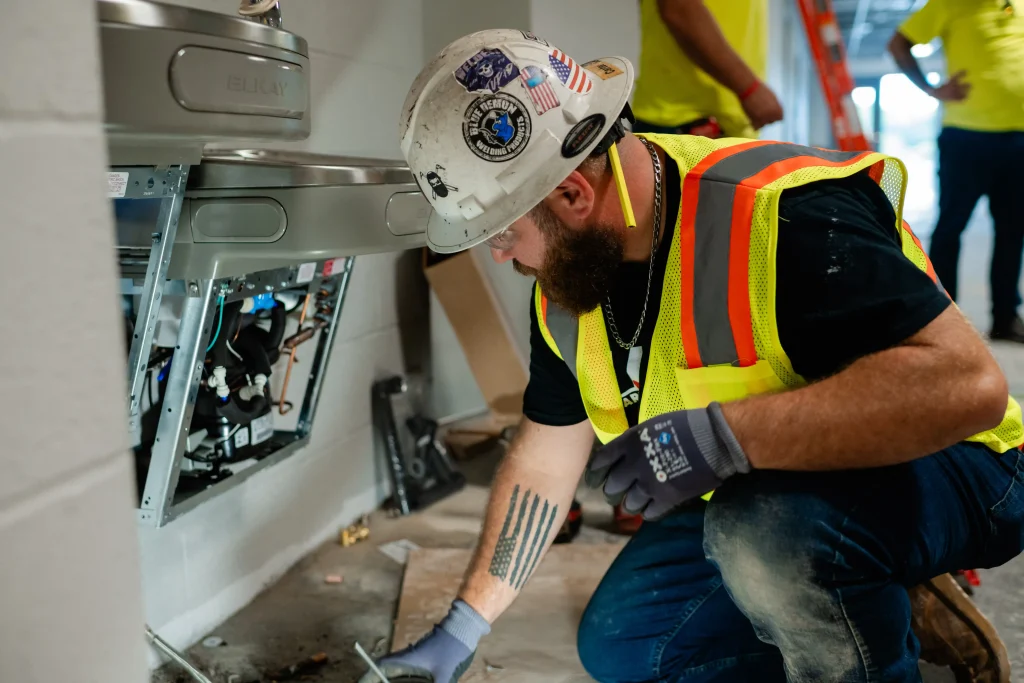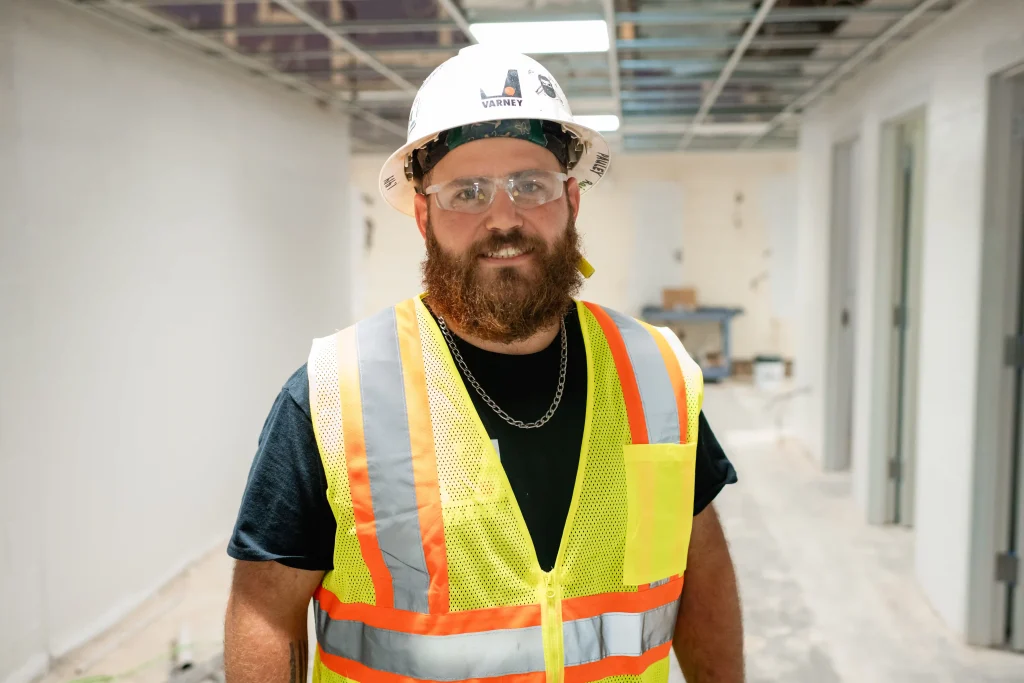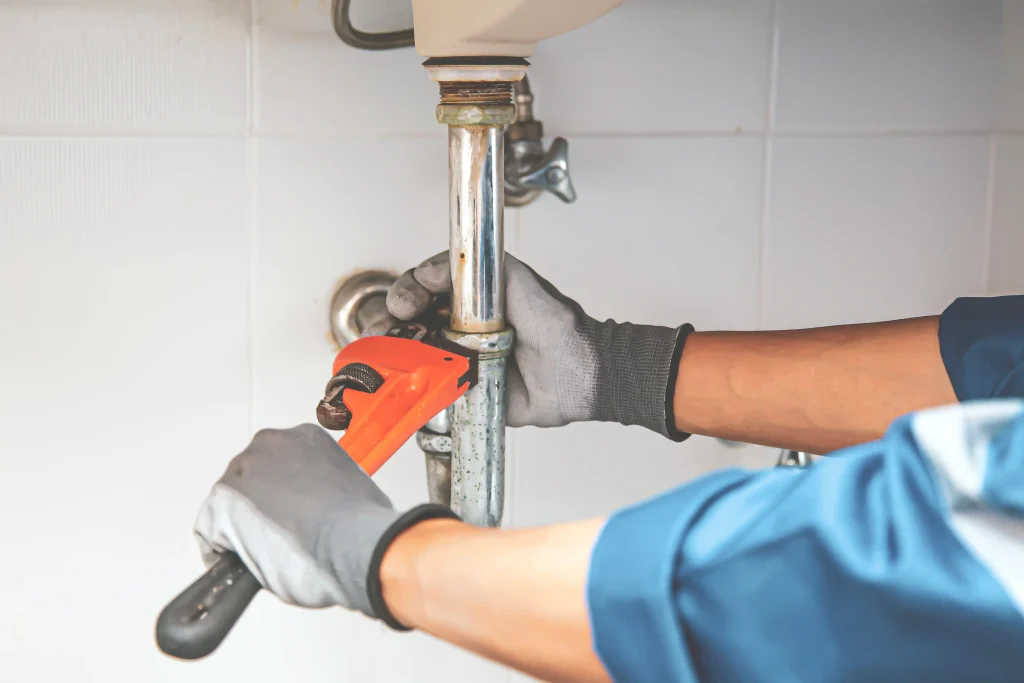
Tankless water heaters have become quite popular for residential use in recent years. Some of the characteristics of a tankless water heater serve the home environment quite nicely – but does that same line of thinking apply to the commercial setting? While there are cases where a tankless heater will make sense for a business, there are some complexities to consider. This article will take a look at some of the factors to consider when making this decision.
To work with a commercial plumber that will have the answers to all of your questions, turn to Varney for assistance. Whether it’s plumbing repair or a new installation, the Varney team is ready to jump into action. Reach out today to learn more.
Understanding the Difference
It’s not hard to grasp the fundamental difference between a traditional water heater and a tankless model. The traditional version is going to have a large tank, or for a commercial property, perhaps several tanks, that hold heated water. That way, hot water is always available, and it can be accessed at any time by turning the correct tap.
With a tankless model, of course, that tank is removed from the system. This is an on-demand approach to hot water, as the water is only heated when a hot tap is opened up and the water starts to flow. Since no tank of water is being held at a constantly elevated temperature, significant energy savings can be enjoyed. However, as the water has to be heated on demand, there is a lag in the system, and warm water will only be available after cooler water has moved through.
The Commercial Setting
The pros and cons for residential systems line up pretty nicely in favor of tankless models. Savings on utility bills from not keeping a tank hot are always appreciated, the small delay in hot water availability isn’t a big deal, and it’s nice not having so much space taken up by a tank in the garage or basement.
But many of those selling points fall a little flat in a commercial environment. Businesses like energy savings too, but for buildings that use a lot of hot water, the savings might not be much – the water is still getting heated one way or another. Also, a large commercial building probably has plenty of space for water tanks, so that’s not a big advantage. Finally, it might not work in a practical sense to ask people to wait for the water to get hot after they turn a tap. A commercial building that includes a kitchen for a restaurant, for example, will need immediate hot water.
Get a Custom Answer
In the end, it doesn’t matter much if a tankless water heater will work for other commercial properties – it only matters if it is the right choice for your business. So, with that in mind, contact Varney today to get more information on this matter and work with a member of the team to decide how you are going to proceed. With the right water heater in place, you can check this point off of your to-do list and move on to new challenges and opportunities.


